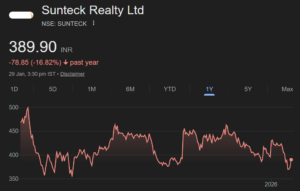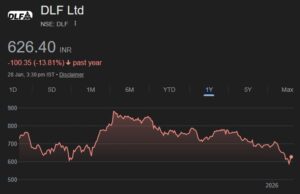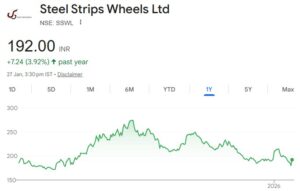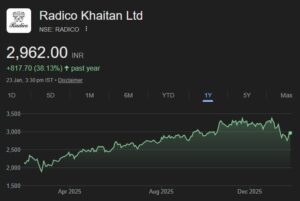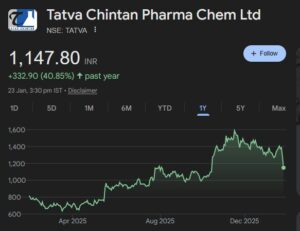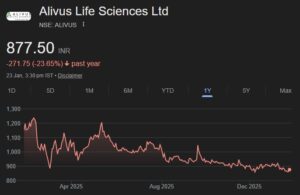
When a well-known investor takes a stake in a company, it often creates a ripple effect in the market. That’s exactly what happened with Ganesh Consumer Products. Backed by marquee investor Ashish Kacholia, the company’s IPO drew attention from retail investors but its disappointing debut has sparked fresh debate on “blind following” in the markets.
📉 A Disappointing Debut
Ganesh Consumer’s shares were listed on the exchanges at ₹295 on BSE and ₹296 on NSE, an 8% discount to its IPO price of ₹322. This left many retail investors, who had subscribed in anticipation of a strong debut, sitting on immediate paper losses.
The ₹409 crore IPO, comprising a ₹130 crore fresh issue and ₹278.8 crore offer for sale, had been subscribed 2.68 times overall. Institutional demand was strong, QIBs subscribed 4.03 times and NIIs 4.41 times, but retail participation remained modest at just 1.17 times, reflecting caution among small investors.
🗣️ Social Media Buzz: “When Celebrity Investors Invest, You Get Headlines…”
The listing disappointment quickly spilled onto social media. Investor Amit Bhatt (@AMitengineers) wrote on X:
“Sir, you and many celebrity investors jumped into Ganesh Consumer, and the crowd followed… now everyone’s in red. 🤦♂️ Are you guys making the same mistake as average investors, or just getting ‘special discounts on losses’? 😅📉”
Ashish Kacholia, who holds 1.46% in Ganesh Consumer, replied with a pointed reminder:
“Crowd should not follow blindly, right?”
Another user, Proshanto Paul (@proshanto101), highlighted the company’s strong regional presence:
“You will find Ganesh products in every grocery store in West Bengal.”
The exchange underscored a familiar pattern in Indian IPOs: retail investors often pile in when marquee names are attached, without evaluating fundamentals or pricing.
Crowd should not follow blindly, right?
— Ashish Kacholia (@LuckyInvest_ARK) October 9, 2025
🏭 Company Profile: Strong Regional Brand, Low Margins
Ganesh Consumer is a well-known FMCG name in eastern India, particularly West Bengal, with products like atta, maida, sooji, dalia, and sattu. It has also diversified into packaged instant mixes, spices, and ethnic snacks.
The company boasts a wide distribution network:
-
28 C&F agents
-
9 super stockists
-
Nearly 1,000 distributors
-
Reach across four states
Its FY25 revenues stood at ₹855.16 crore, up 12% year-on-year, while net profit grew 31% to ₹35.43 crore. The majority of revenues (77%) come from the B2C segment.
However, Ganesh operates in a high-volume, low-margin segment. EBITDA margin in FY25 was 8.61% and PAT margin just 4.17%, typical for many staples businesses, but leaving little room for valuation exuberance.
🏗️ Use of Funds
The company plans to utilize the IPO proceeds for:
-
₹60 crore: debt repayment
-
₹45 crore: setting up a new gram flour manufacturing unit in Darjeeling
-
Remaining funds: general corporate purposes
📊 Market Sentiment: Pain or Opportunity?
While some investors are frustrated with the listing loss, others view the current price as a buying opportunity. Ganesh Consumer’s entrenched regional brand and growing distribution footprint give it an edge in the eastern FMCG market.
But analysts also caution that:
-
Low margins make the business vulnerable to input cost inflation.
-
Expansion plans need efficient execution to improve profitability.
-
Valuations should be assessed on fundamentals, not celebrity endorsements.
💬 Takeaway: Investing ≠ Copying
This episode serves as a reminder of a timeless market lesson: celebrity investors may have different time horizons, entry prices, or risk appetites than retail investors. Simply mirroring their moves is not a strategy.
As Ashish Kacholia put it: “Crowd should not follow blindly.”
For retail investors, doing their own due diligence, on business models, financials, and valuations, remains the best defense against avoidable losses.

